Exploring the bioeconomy

My name is Johann, and in this short blog post, I would like to take you on a journey into the world of the bioeconomy and show you the possibilities it offers.
There are many different definitions of the bioeconomy, and the focus of these definitions often differs from country to country. For me, the most important common denominator is that the bioeconomy is a vehicle that could make it possible to achieve progress without exceeding planetary boundaries.
The organization in the bioeconomy that I am involved in defines bioeconomy in a more technical way: "The bioeconomy is the production, utilization, conservation, and regeneration of biological resources, including related knowledge, science, technology, and innovation, to provide sustainable solutions (information, products, processes and services) within and across all economic sectors and enable a transformation to a sustainable economy".
TLTR: Go to the section “Opportunities for young scientists”. It’s the only important section 😉
My bioeconomy journey
My own journey into the bioeconomy began in the spring of 2020. At the time, I applied to be a youth representative at the Global Bioeconomy Summit (GBS). The starting point was that I had realized during my bachelor's degree in biotechnology in Germany that I find the area of biology most exciting when biology is applied practically or when work is being done on its practical applicability (in the sense of engineering biology).
After my successful application as a youth representative, I was appointed Bioeconomy Youth Champion for the Global Bioeconomy Summit by the International Advisory Council on Global Bioeconomy (IACGB). Don't be fooled by the term "champion." It's not about being the perfect bioeconomist with all the answers. It's more about being a passionate advocate willing to go the extra mile for what you believe in and to champion that.
In my first months as Bioeconomy Youth Champion, I unfortunately realized that younger generations play no role in the global bioeconomy and in decision-making processes. Since then, I have been committed to making this change. Especially, I am passionate about championing the inclusion of youth and young professionals in the bioeconomy, particularly in the policy arena.
My interest in the field of bioeconomy also led me to choose a non-traditional master's program, studying bioentrepreneurship in Copenhagen, and I am now working as a business developer at a bioeconomy startup in Copenhagen.
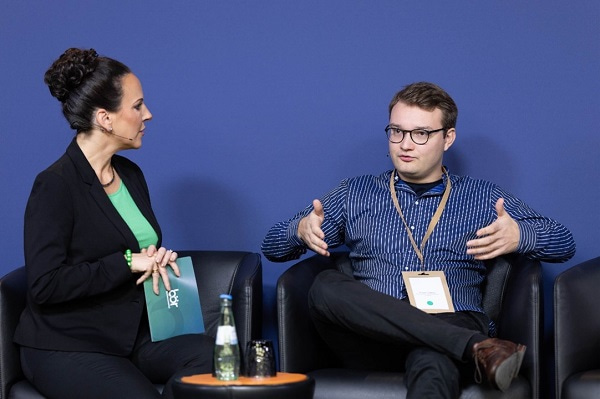
Johann Liebeton during a panel discussion at the Bioeconomy Forum of the German
Bioeconomy Council in December 2023. Image rights belong to Bernd Lammel, Bundesfoto.
Opportunities for young scientists
This is definitely the most important part for you! Pay attention. 😉
The bioeconomy, in my opinion, is a rather opaque community and field, which is exacerbated by the absence of a uniform definition and understanding, and the lack of a global roadmap outlining its trajectory.
Bioeconomy Youth Community on LinkedIn
As a group of Bioeconomy Youth Champions, who were all very surprised by that opacity, we have opened a Bioeconomy Youth Community LinkedIn group where we invite everyone to post opportunities that come their way, and we do this of course as well. This means that if you have a LinkedIn account, which I highly recommend, please join and see what current opportunities are available or if you know of opportunities, please post them there or ask me to post them there.
Get involved in a regional Youth and Young Professional Group of the IACGB
I cannot stress enough how important it is to build a network. Getting to know people from other countries and working together is a lot of fun too! The Bioeconomy Youth Champions of the IACGB have been building regional groups in almost all world regions since 2020. These groups are working to promote the bioeconomy in general and the interests of the younger generations in particular in their respective regions. We believe that the perspective of the younger generation on the bioeconomy has always been underestimated. We are trying to change this so that younger generations can be part of the decision-making process in the future.
If you would like to be involved, please feel free to contact me directly.
Follow what the EU Bioeconomy Youth Ambassadors are doing
The Bioeconomy Youth Champions of the IACGB have always had a global focus. We are therefore very pleased that the European Commission has recognized the value of organizations like ours and has launched an initiative to integrate young generations into the European bioeconomy. Here you can get to know the EU Bioeconomy Youth Ambassadors. And they are also working on a Bioeconomy Changemakers Festival in March 2024. You can find out more about this here. I am sure that you will be able to meet many exciting like-minded people at the festival.
The EU Bioeconomy Youth Ambassadors are a highly selective group that are chosen from applications every two years. If you are interested in becoming an ambassador, keep an eye out for the next application period. In the meantime, you can get involved with the European regional group of the Bioeconomy Youth Champions of the IACGB.
Global Biotech Revolution and Biovoices
If you are interested in the entrepreneurial side of the biotechnology industry, there are a few great resources available to you. The Global Biotech Revolution is a youth-led nonprofit organization that aims to bring together and inspire the next generation of biotech leaders. They offer a variety of resources and events, including a global networking platform, mentorship opportunities, and educational workshops. You can find their website here and their LinkedIn page here.
Another great resource is the Biovoices project/Gen B, which is a European initiative that connects young people from all over the continent with the bioeconomy. They offer a variety of opportunities for young people to learn about the bioeconomy, network with others, and get involved in the field.
Of course, there are also many local initiatives that are working to support the bioeconomy. These initiatives can be a great way to connect with other young people in your area who are passionate about the field. If you are not sure where to find these initiatives, do not hesitate to ask relevant stakeholders in your ecosystem.
BioBusiness, bioentrepreneurship and bioeconomy study programs
For many scientists, this tip is probably not the right one. However, I would like to mention it briefly because it would have helped me a lot in my bachelor's degree to know that you can study many exciting programs at the intersection of biology/biotechnology and economics/application with a bachelor's degree in biology. For example, you can study Bioentrepreneurship in Copenhagen, like I did, or Biology and Business in Leiden, or even Bioeconomy in Hohenheim or Munich. The specific program that is right for you will depend on your interests and career goals. However, any of these programs can provide you with the skills and knowledge you are advantageous to succeed in the bioeconomy.
Support programs for soon-to-be entrepreneurs in the biotech arena
I recently came across Nucleate, an academic trainee-led non-profit organization, and thought it's worth mentioning here. I have not been involved with it, but I have friends who are, and it seems worth considering. Nucleate educates the next generation of biotech founders and offers a program to support soon-to-be bioentrepreneurs in turning academic research into commercial ventures. They provide a free and open to all life science startup accelerator – the Activator – which is a global virtual program (location-independent) alongside a growing number of local chapters in Europe, like in Germany in Munich and Berlin, that offer an on-site course. If you are contemplating steering an academic spin-out, giving Nucleate a closer look could be a good idea. More information can be found on the Nucleate website.
As always, do not underestimate the value of experience, a mentor, and networking
If you are curious about the bioeconomy, try getting hands-on experience. Look for internships and/or opportunities to observe professionals, often known as job shadowing. This helps you understand if it's right for you, and such real-world experience also looks great on your resume. This experience is also useful when you start working after university or if you are considering a transition from science to business and entrepreneurial roles. Moreover, consider finding a mentor, as they can offer advice, help you make decisions, and introduce you to new ideas and people in the industry. I have found this very helpful in my own experience. A good first step to expand your network could be following relevant hashtags and bioeconomy thought leaders on LinkedIn, such as #Bioeconomy and #Bioentrepreneurship.
Conclusion
I strongly encourage you to explore opportunities beyond your lab-based research work. Broadening your horizons can be incredibly enriching, a concept I have delved into in an essay. While your exploration does not necessarily have to be within the bioeconomy, I believe you will find it particularly rewarding from my experience. I look forward to possibly meeting you, either virtually or in person, in the realm of bioeconomy. Please feel free to reach out to me anytime!
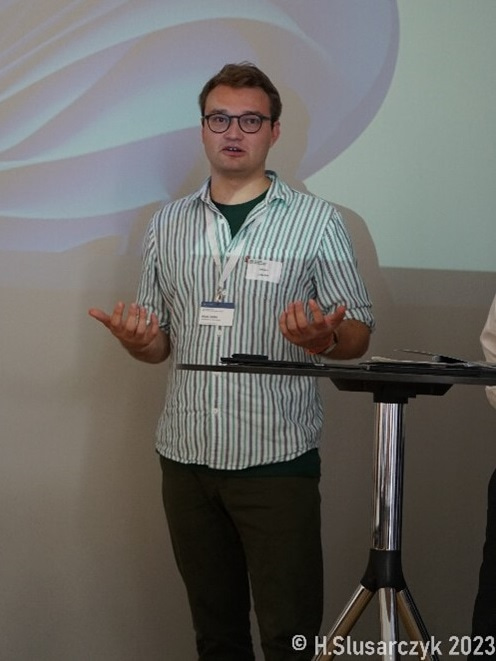
Johann Liebeton speaking at discussion at the "Building the global and local bioeconomies
– Opportunity for shaping the economic and social transformation and addressing environmental crises"
workshop in Hannover in June 2023.
This event was jointly organized by the Volkswagen Foundation and the IACGB.
Image rights belong to Dr. Heike Slusarczyk, IACGB.
Photo by Elena Mozhvilo on Unsplash
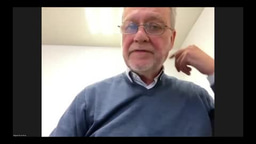


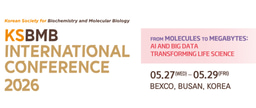
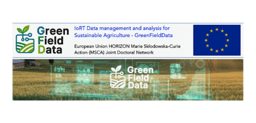
Join the FEBS Network today
Joining the FEBS Network’s molecular life sciences community enables you to access special content on the site, present your profile, 'follow' contributors, 'comment' on and 'like' content, post your own content, and set up a tailored email digest for updates.